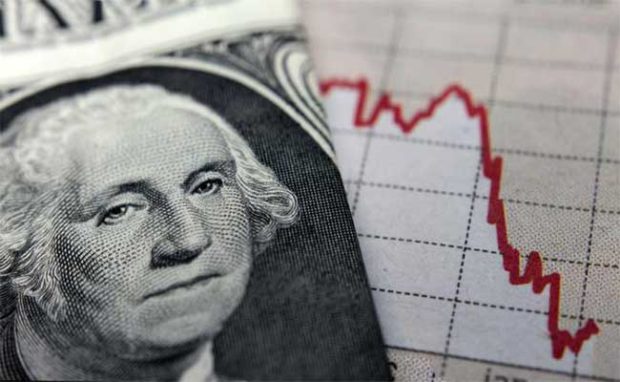Probability of US Recession Jumps Amidst Trumps Trade Wars
The odds of a US recession by next year have increased sharply, with mounting protectionism continuing to pose the greatest economic threat, according to a business economic survey Monday. Nearly all the respondents to the quarterly survey from the National Association for Business Economics predicted growth would slow in 2019 but were moderately less gloomy about the risks to their outlook.
US recession odds jump as Trump trade wars bite: survey https://t.co/dep2nYZshg pic.twitter.com/ERpIC7vROK
— Jairo Rodriguez (@RealtorJairo) June 3, 2019
However, the poll of 53 economic forecasters from major US corporations and universities was conducted in the first half of May, just as US trade relations with China took a sudden turn for the worse but before US President Donald Trump’s latest threat to impose new tariffs on Mexico in a dispute over migration starting at five percent and quickly increasing to 25 percent. “Increased trade protectionism is considered the primary downside risk to growth by a majority of respondents, followed by financial market strains and a global growth slowdown,” Gregory Daco of Oxford Economics, who chaired the survey, said in the report.

Photo: Getty Images
“Recession risks are perceived to be low in the near term but to rise rapidly in 2020.” The panelists put the odds at 60 percent for a US recession before the end of 2020 — nearly double the 35 percent forecast in the survey three months ago.
Related Articles
US-China Trade and Tariff War Continues to Rage on
Stocks Flip Flop as Market’s Trade-War Spin Cycle Continues
Nearly 90 percent of respondents said they had cut their growth forecasts in recent months due to US trade policy, which has involved battles with all major US trading partners, but even so the overall consensus for this year and next are a bit higher than the last survey. Panelists now expect GDP growth to fall to 2.6 percent this year and 2.1 percent by next year, from 2.9 percent at the end of 2018. Most, or 60 percent, said the balance of risks was weighted to the downside but this was down from 74 percent in the previous survey.

